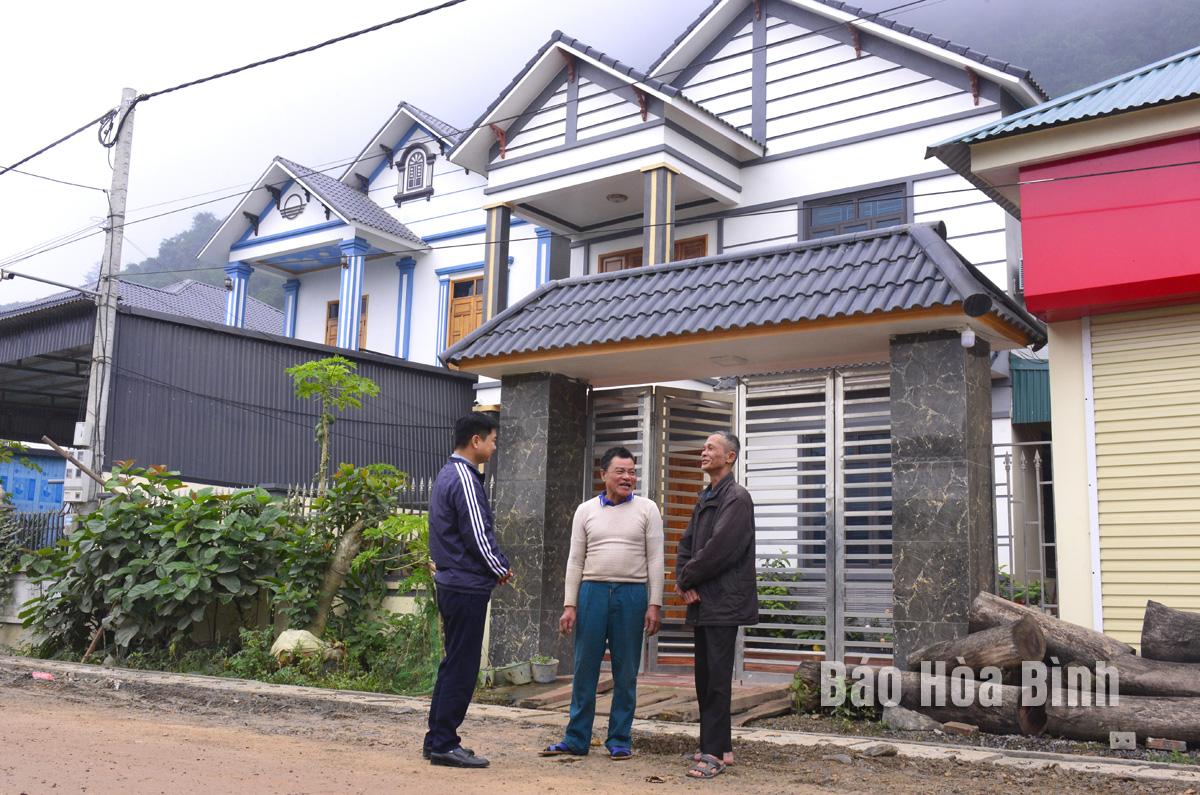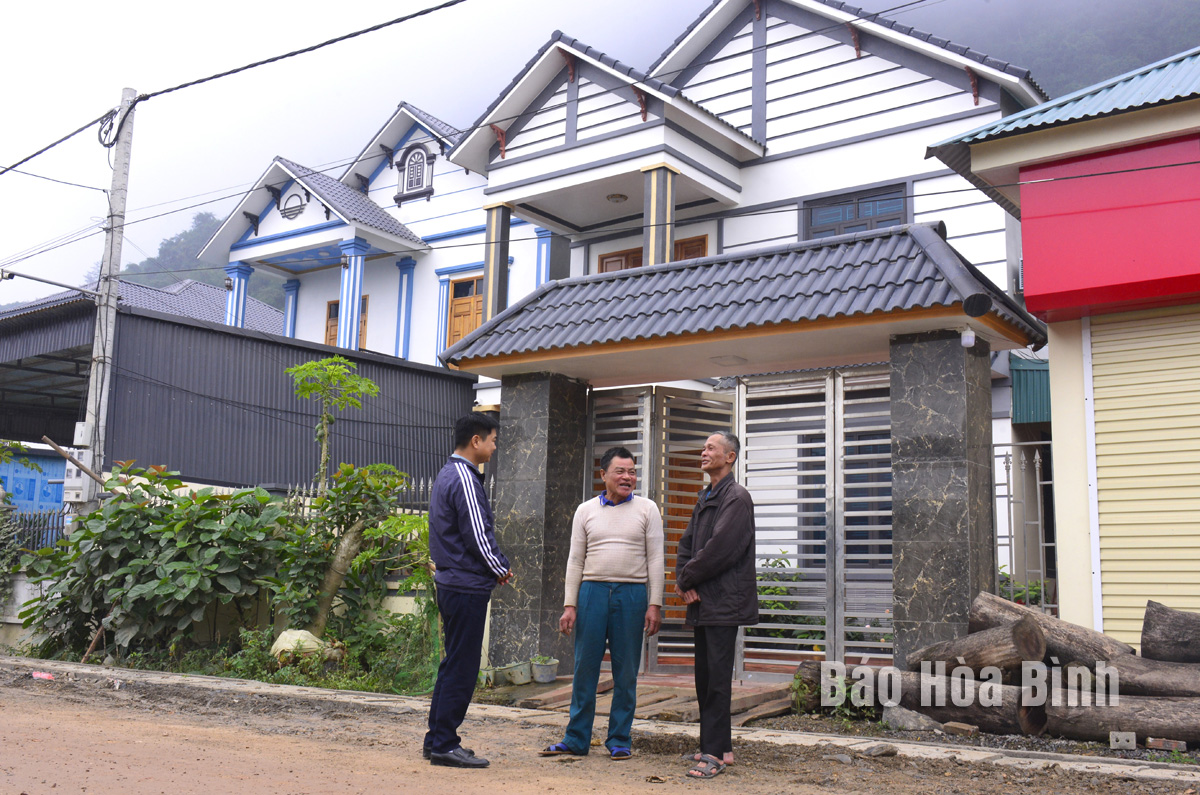
The new Nhun hamlet in Yen Phu commune, Lac Son district is one of the eight resettlement areas in the Canh Tang reservoir project, while the old Nhun hamlet is now submerged. The hamlet, about three kilometres away from the commune’s centre, is now home to more than 100 households.
Part of the Nhun resettlement area in Yen Phu commune, Lac Son district.
Almost all houses in the resettlement area are permanent houses built at a cost of at least 1 billion VND (41,000 USD) each. In 2029, the district and commune authorities called on people in the former Nhun hamlet to relocate to make room for the construction of the Canh Tang reservoir.
About 100 households were arranged in the resettlement area with sufficient infrastructure including concrete roads, lighting systems, and community houses. Each household was allocated 400 sq.m of land to build a house.
Bui Van Binh, the land management official of Yen Phu commune said that the commune has two resettlement areas for people relocated for the reservoir, which are Da Moi and Nhun hamlets. He said that at the beginning of the relocation, people did not want to go far from their fields and ancestors' graves. However, the entire political system including cadres, Party members, and prestigious persons joined hands to persuade people to follow the Government’s policy. Meanwhile, relevant units and investors implemented solutions to remove difficulties in compensation.
The Canh Tang reservoir project is one of the four key projects of the Ministry of Agriculture and Rural Development and a key project of the province. It is considered a major irrigation project in the North, with a capacity of about 91 million cubic metres. A total of 652 households had to move for the reservoir’s construction.
The Lac Son district People's Committee built eight resettlement areas for people in eight hamlets of three communes - Van Nghia, Binh Hem, and Yen Phu.
The emulation movement "Hoa Binh joining hands to build new-style rural areas” has been widely spreading, becoming a driving force that motivates the localities to renew rural landscapes and improve the material and spiritual lives of the residents. In this movement, the people play a central role-both as the main implementers and direct beneficiaries of its outcomes.
In response to the global digital revolution, Hoa Binh Newspaper is transforming itself into a modern and multi-platform media hub, blending cutting-edge technology with a restructured newsroom and a new generation of tech-savvy journalists.
Hoa Binh province’s Association of the Elderly recently held a conference to review the project on expanding the inter-generation self-help club model until 2025.
In a move to implement Resolution No. 57-NQ/TW, issued on December 22, 2024 by the Politburo, which targets breakthroughs in science-technology development, innovation, and digital transformation, the Hoa Binh provincial Department of Health has issued a plan to roll out the "Digital Literacy for All” campaign within the local health sector.
An Nghia Commune (Lạc Sơn District) is one of the communes that achieved the tha standard of the national new rural area in 2018. Entering a new development phase, the commune is now trying to meet the criteria for the advanced new rural development. With the strong political will and the public consensus, the commune is gradually overcoming the challenges to reach this goal, aiming for the sustainable development.



